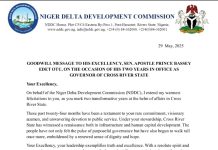
| By Lizzy Adie, 6th May 2015,7:20am.
The purpose of this article is to consider some of the potential health advantages and disadvantages of drinking rain water on a regular basis.
Advantages
* Rain water does not contain the levels of chemicals such as Chlorine and Fluoride that are used in municipal water treatment facilities.
* The best thing about rainwater is that it is free from pollutants as well as salts, mineral and other natural and man-made contaminants. In areas where there is excess rainfall, the surplus rainwater can be used recharge ground water through artificial recharge techniques.
* The most important factors regarding the quality of rain water had to do with the environment in which it is collected. Rain water harvested in a pristine environment, such as high in the mountainous, unpopulated regions of the world is going to be much cleaner than rainwater collected in a polluted big city.
Disadvantages
* According to David Cook of the Argonne National Laboratory, “Rainwater contains pollutants, soil, plant parts, insect parts, bacteria, algae and sometimes radioactive materials that the rain or snow has washed out of the air.”
“Air – borne pollutants from hundreds of miles away can be spread quite rapidly. Because of this fact, it would most likely be necessary to test the water on a daily basis to ensure safe drinking”.
If the rainwater can be filtered with one of the water filtering systems that can be purchased today, and then the water is boiled, we could probably drink the water safely. Says Cook.
However, he says, ” it is safer to get your water from municipal water supplies or from Wells that are frequently tested”.
Thus, drinking rain water that has been properly harvested and adequately filtered is an acceptable form of drinking water (in many cases better than tap Water or bottled water).
Coiled from www.waterbenefitshealth.com
|









